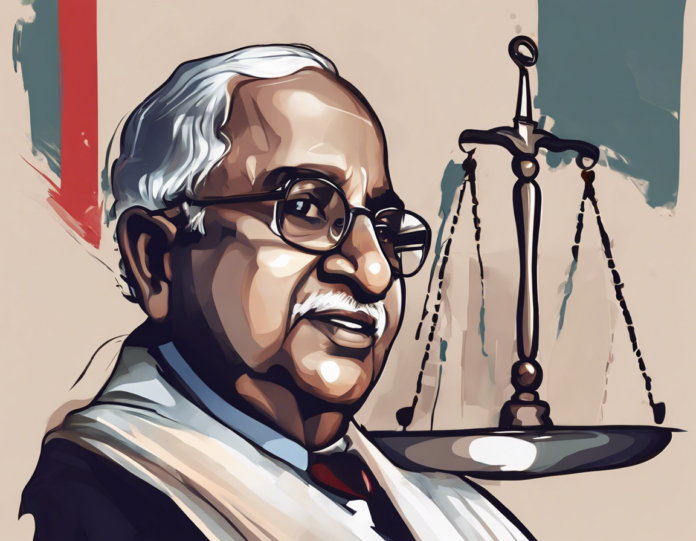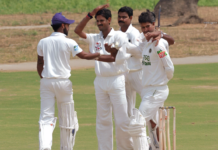Introduction
In the realm of social justice and public administration, the figure of Justice Dhananjaya Y. Chandrachud has become increasingly prominent, particularly in relation to his role in upholding justice and accountability in India. As a member of the Lokpal Selection Committee, Justice Chandrachud has played a significant role in shaping the trajectory of justice and anti-corruption initiatives in the country. This article seeks to delve into the pivotal role played by Justice Chandrachud in the Lokpal institution, exploring his contributions and impact on the broader landscape of governance and accountability in India.
Who is Justice Dhananjaya Y. Chandrachud?
Justice Dhananjaya Y. Chandrachud is a distinguished jurist and legal expert who currently serves as a judge of the Supreme Court of India. Born into a lineage of legal luminaries, Justice Chandrachud has carved a niche for himself through his erudition, integrity, and commitment to upholding the principles of justice and rule of law. Prior to his elevation to the Supreme Court, Justice Chandrachud served as the Chief Justice of the Allahabad High Court and the Bombay High Court, where he distinguished himself through landmark judgments and progressive legal interpretations.
Role in Lokpal Selection Committee
The Lokpal Selection Committee is a crucial body tasked with the appointment of the Lokpal, an ombudsman-like institution aimed at combating corruption and ensuring transparency in public office. Justice Dhananjaya Y. Chandrachud’s inclusion in the Lokpal Selection Committee brings a wealth of experience and expertise to the table, enriching the deliberative process and ensuring a judicious selection of candidates for the esteemed position of Lokpal.
Contributions to Anti-Corruption Efforts
Justice Chandrachud’s jurisprudential philosophy is deeply steeped in the values of integrity, probity, and accountability. His judicial pronouncements reflect a nuanced understanding of the complexities of governance and the imperative of combating corruption at all levels. As a member of the Lokpal Selection Committee, Justice Chandrachud has been at the forefront of spearheading anti-corruption efforts, advocating for stringent measures to root out malfeasance and malpractice in public institutions.
Impact on Transparency and Accountability
Justice Dhananjaya Y. Chandrachud’s steadfast commitment to transparency and accountability has had a profound impact on the functioning of public institutions in India. His emphasis on the primacy of the Right to Information (RTI) Act, whistleblower protection laws, and judicial independence has bolstered the edifice of governance and reinforced the public’s trust in the justice system. By championing the cause of accountability, Justice Chandrachud has catalyzed a paradigm shift in how power is exercised and scrutinized in the public domain.
Challenges and Opportunities
Despite the commendable efforts of Justice Chandrachud and the Lokpal Selection Committee, there remain challenges on the path to ensuring effective anti-corruption measures in India. Bureaucratic inertia, political interference, and loopholes in the legal framework continue to impede the seamless functioning of anti-corruption mechanisms. However, these challenges also present opportunities for innovative solutions, robust legal reforms, and enhanced public participation in the fight against corruption.
Future Directions
Looking ahead, Justice Dhananjaya Y. Chandrachud’s role in the Lokpal institution is poised to shape the future trajectory of anti-corruption initiatives in India. By advocating for a holistic approach encompassing legal reforms, ethical governance, and citizen engagement, Justice Chandrachud can catalyze a transformational change in how corruption is perceived and tackled in the country. His vision of a transparent, accountable, and just society serves as a lodestar for future generations of policymakers, activists, and citizens committed to upholding the foundational values of democracy.
Frequently Asked Questions (FAQs)
-
What is the Lokpal institution, and why is it significant?
The Lokpal institution is an anti-corruption watchdog responsible for investigating complaints of corruption against public officials. It plays a crucial role in ensuring transparency and accountability in governance. -
What is the Lokpal Selection Committee, and who are its members?
The Lokpal Selection Committee is tasked with appointing the Lokpal. Its members include the Prime Minister, the Speaker of the Lok Sabha, the Leader of Opposition in the Lok Sabha, the Chief Justice of India, and an eminent jurist nominated by the President. -
What are Justice Dhananjaya Y. Chandrachud’s key contributions to the Lokpal Selection Committee?
Justice Chandrachud brings a wealth of judicial experience, integrity, and a commitment to anti-corruption efforts to the Lokpal Selection Committee. His legal acumen and dedication to upholding justice have been instrumental in shaping the selection process. -
How does Justice Chandrachud’s tenure on the Lokpal Selection Committee impact anti-corruption measures in India?
Justice Chandrachud’s tenure on the Lokpal Selection Committee has bolstered anti-corruption efforts in India by advocating for stringent measures, ethical governance, and transparency. His emphasis on accountability and probity has set new benchmarks for combating corruption. -
What are the key challenges faced by the Lokpal institution in India?
The Lokpal institution in India faces challenges such as bureaucratic inertia, political interference, and legal loopholes that impede its efficacy. Overcoming these challenges requires concerted efforts, legal reforms, and enhanced public participation in the anti-corruption drive.









